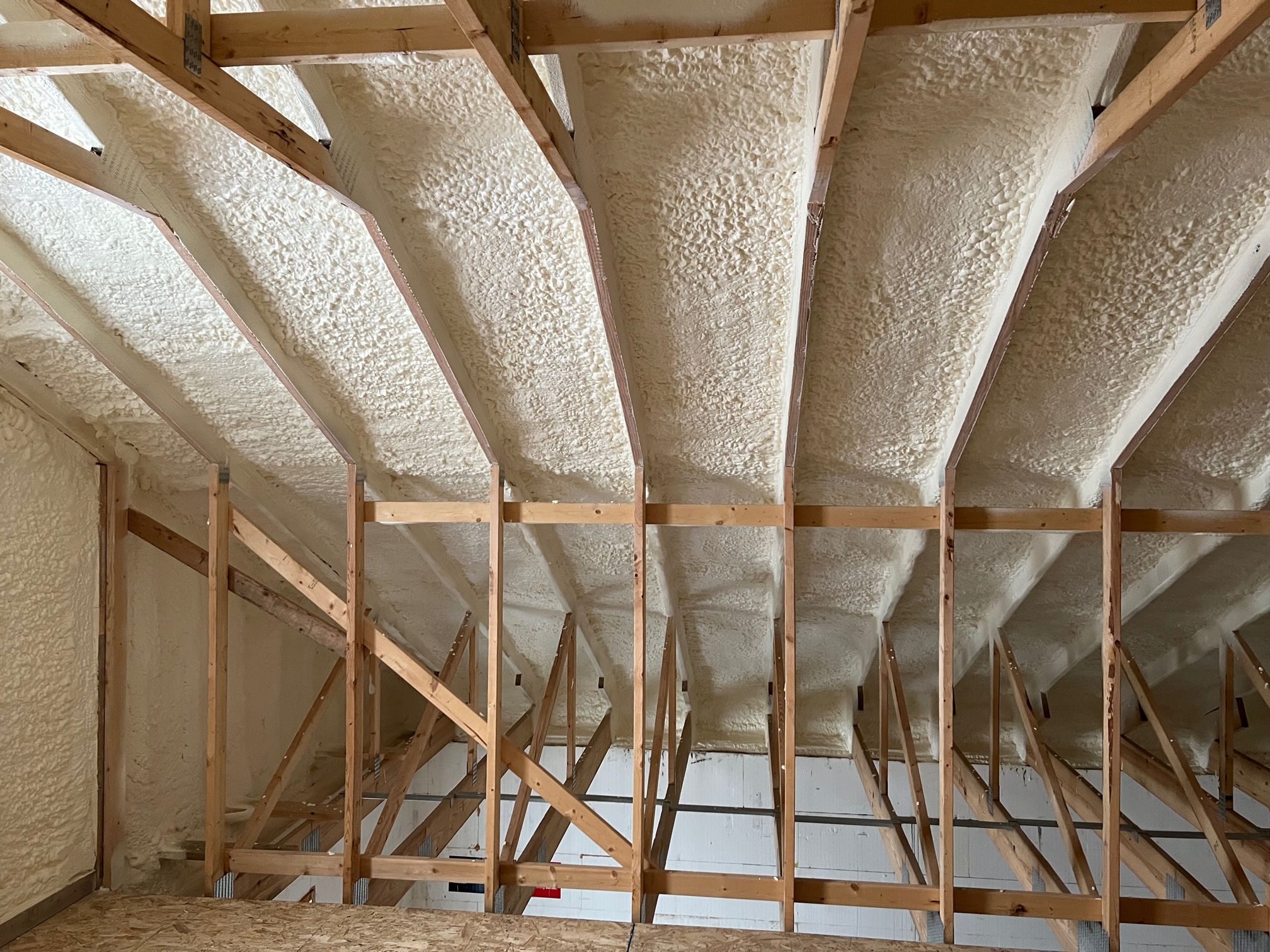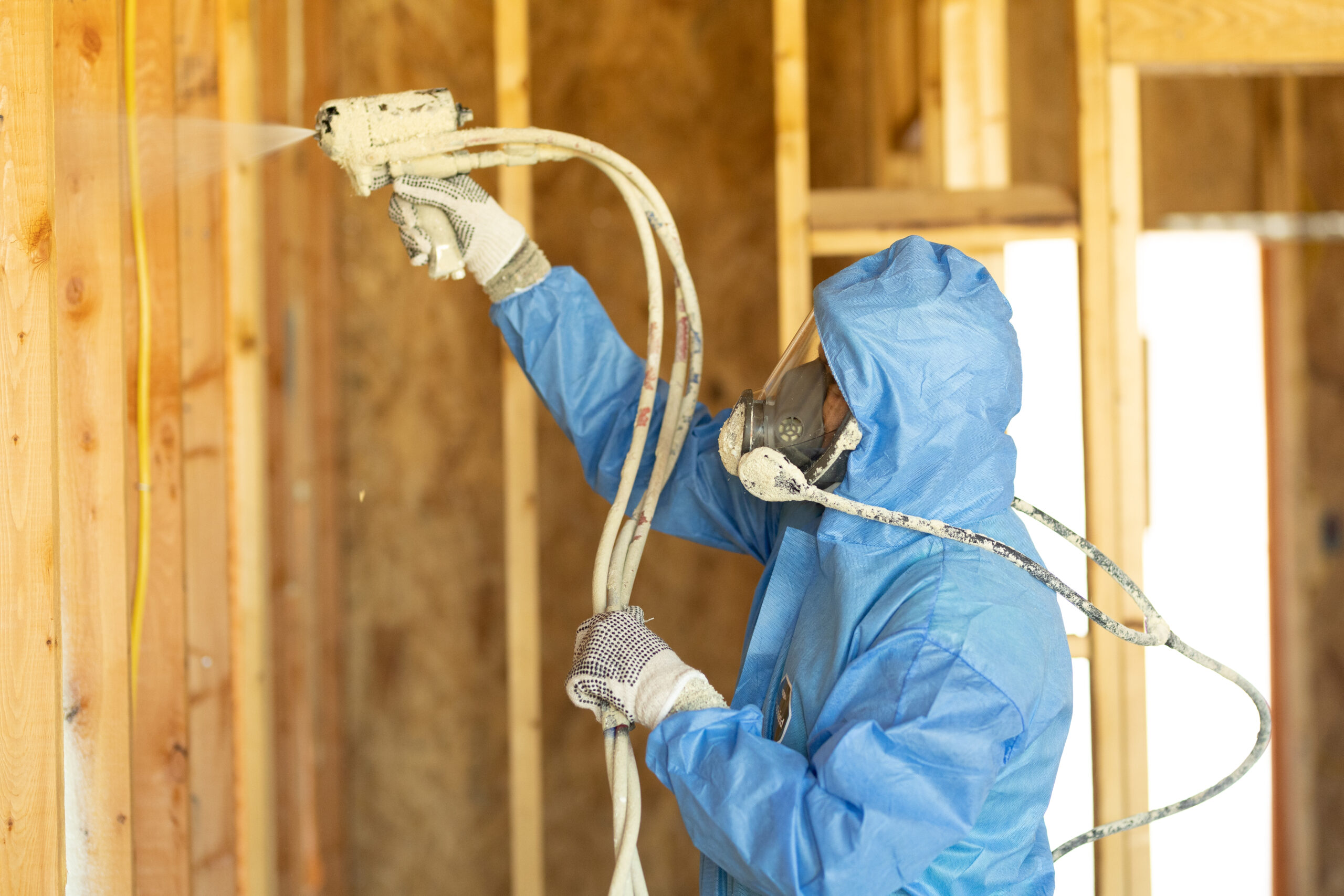How Spray Foam Can Enhance Power Performance in Your Home
How Spray Foam Can Enhance Power Performance in Your Home
Blog Article
Spray Foam: The Ultimate Service for Air Sealing and Insulation
Spray foam insulation has arised as a leading remedy for reliable air sealing and thermal insulation, providing a special combination of buildings that establish it apart from typical approaches. Comprehending the complete extent of its advantages, setup processes, and comparisons with other insulation kinds is crucial for making notified decisions.
What Is Spray Foam?
Spray foam is a flexible insulation material that integrates the principles of air securing and thermal resistance to improve power performance in buildings. Composed mainly of polyurethane or other similar compounds, spray foam is applied as a fluid that broadens upon contact with surface areas, producing a strong, continual layer of insulation. This unique residential property enables it to load spaces, fractures, and spaces that traditional insulation products may forget, supplying an exceptional air seal.
There are 2 primary types of spray foam: open-cell and closed-cell. Open-cell spray foam is lighter and more adaptable, providing superb noise absorption and a reduced R-value per inch - Spray Foam. In contrast, closed-cell spray foam is denser, giving a greater R-value, moisture resistance, and included structural stability to constructing elements
The application procedure typically entails specific tools, guaranteeing a smooth application that follows numerous substrates, consisting of metal, concrete, and timber. This adaptability makes spray foam appropriate for both brand-new constructions and retrofitting existing frameworks. Its ability to produce an impermeable barrier substantially adds to decreasing power consumption and enhancing interior air quality, thus making it a favored selection amongst home builders and property owners alike.
Benefits of Spray Foam Insulation
One of the most considerable benefits of spray foam insulation is its extraordinary capacity to develop a continuous air barrier, which efficiently reduces energy loss. Unlike standard insulation products, spray foam expands to fill gaps and cracks, guaranteeing that air leakage is substantially decreased. This characteristic not just enhances energy performance however additionally brings about decrease energy expenses in time.
Furthermore, spray foam insulation offers remarkable thermal resistance, adding to an extra steady indoor environment. Its high R-value per inch permits for reliable insulation in restricted rooms, making it excellent for attic rooms, walls, and crawl spaces. Furthermore, the moisture-resistant residential properties of spray foam assistance protect against mold and mildew growth, advertising much healthier living conditions.
One more crucial benefit of spray foam insulation is its sound-dampening qualities (Spray Foam). It properly minimizes noise transmission in between rooms, developing a quieter and a lot more comfortable home setting. The longevity of spray foam likewise stands out, as it does not sag or settle gradually, maintaining its efficiency throughout its life expectancy
How Spray Foam Works
Recognizing exactly how spray foam insulation functions is vital for valuing its performance in air sealing and thermal resistance. Spray foam insulation is composed of two main parts: isocyanate and polyol resin. When these parts are mixed, they undertake a chain reaction that creates the material to broaden rapidly, producing a thick foam that fills fractures, voids, and cavities.
As the foam increases, it follows surfaces, creating an airtight seal that substantially lowers air infiltration. This characteristic makes spray foam insulation highly efficient at protecting against drafts and moisture penetration, which can cause power loss and damages with time. Furthermore, the closed-cell variation of spray foam supplies superior thermal resistance due to its rigid structure, efficiently lessening warmth transfer.
The unique residential properties of spray foam permit it to conform to irregular surface areas, ensuring comprehensive protection and a smooth obstacle. Because of this, spray foam insulation not only improves energy efficiency but likewise adds to boosted interior air quality by decreasing the buildup of pollutants and irritants. Ultimately, comprehending the auto mechanics behind spray foam highlights its role as a remarkable option for insulation and air sealing in both business and property applications.
Setup Refine Introduction

Before installment, the space should be appropriately cleaned and prepped, making certain that surfaces are devoid of debris, dampness, and dust. This action is crucial since pollutants can endanger attachment and total performance. As soon as the location is prepared, the application entails mixing both elements of the spray foam, which expands upon call and loads voids properly.
Educated specialists should conduct the installation, utilizing specialized equipment to guarantee uniform coverage and optimal density. Security safety measures, consisting of using protective gear and ensuring proper air flow, are crucial throughout this procedure. After application, the foam usually remedies rapidly, forming a strong obstacle that improves energy effectiveness.
Comparing Spray Foam to Conventional Insulation
When evaluating insulation alternatives, spray foam insulation sticks out in contrast to typical products such as fiberglass and cellulose. Among the main advantages of spray foam is its premium air securing abilities. Unlike fiberglass and cellulose, which can allow air seepage, spray foam broadens upon application, filling up crevices and voids to produce an airtight seal. This causes improved energy performance, as much less heated or cooled down air leaves the home, leading to reduced utility costs.
Furthermore, spray foam gives a higher R-value per inch than typical insulation types, supplying more effective thermal resistance in a thinner profile. This a knockout post particular is especially advantageous in rooms with limited tooth cavity deepness. Spray foam is immune to moisture and mold and mildew growth, which can be a considerable problem with cellulose and fiberglass, particularly in damp settings.
However, spray foam insulation commonly carries a greater upfront cost than its standard equivalents. Property owners need to consider this initial investment versus long-term find energy cost savings and efficiency advantages. Ultimately, while both insulation types serve their function, spray foam arises as a more sophisticated remedy for modern insulation needs, especially in terms of air securing and thermal effectiveness.

Conclusion
In recap, spray foam insulation stands for a very reliable remedy for attaining optimum air securing and thermal resistance. Its distinct properties, including dampness resistance and audio dampening, make it appropriate for different applications in both new constructions and retrofitting tasks (Spray Foam). The first expenses might be greater compared to conventional insulation products, the long-lasting benefits, such as substantial energy savings and boosted indoor air top quality, validate the investment and underscore its worth in modern structure practices.
Spray foam insulation has arised as a leading service for effective air securing and thermal insulation, using a special mix original site of properties that establish it apart from typical techniques.Spray foam is a versatile insulation product that combines the concepts of air sealing and thermal resistance to improve power effectiveness in structures.When assessing insulation alternatives, spray foam insulation stands out in comparison to standard materials such as fiberglass and cellulose. Inevitably, while both insulation types serve their objective, spray foam emerges as a much more innovative service for modern-day insulation needs, especially in terms of air securing and thermal performance.
In summary, spray foam insulation represents a very reliable service for accomplishing optimum air sealing and thermal resistance.
Report this page